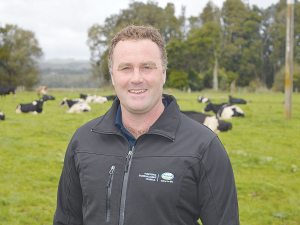Fonterra Suppliers Confident in Mainland Dairy Future
Fonterra's 460 milk suppliers in Australia, who will switch to Lactalis end of this month, are unfazed with the impending change.
 Fonterra Co-operative Council chair John Stevenson says the consumer business sale could take several shapes.
Fonterra Co-operative Council chair John Stevenson says the consumer business sale could take several shapes.
Fonterra's proposed sale of its global consumer business could fetch over $3 billion but not all proceeds will end up in the pockets of farmer shareholders.
An independent report prepared by Northington Partners - based on information released by Fonterra to date on the proposed divestment - states that a full sale of the co-op's consumer business could reap between $3b to $3.4b or about $2/share.
While the report says most of any sale proceeds could be returned to shareholders, it will be influenced by a wide range of factors, including seasonal working capital requirements and expected capital expenditure.
Fonterra Co-operative Council chair John Stevenson told Dairy News that it's still early days and the sale could take several shapes.
Stevenson says the decision on any capital return would rest with the Fonterra board and, like the Soprole divestment and subsequent capital return, would depend on key financial factors.
"Fonterra has indicated that there could be a significant financial return, but I would caution farmers to count their chickens around the $3b figure."
Any sale of the consumer business - including household name brands such as Anchor and Mainland and Fonterra Oceania and Fonterra Sri Lanka - would require shareholder approval.
Stevenson says the council plans to keep farmers fully informed as when the co-op releases more information.
"There's a long way to go and farmers will need to vote and approve, it's a significant decision."
The council plans to provide farmer shareholders more independent reports from Northington Partners as more information is publicly available.
Fonterra announced back in May that the consumer businesses were being put on the block and said it was looking at a timeframe of 12-18 months to achieve a sale.
In a strategy update issued by Fonterra in late September, the co-op pledged a "significant capital return" if it achieves the planned asset sale. However, it has not quantified in dollar terms what the return might be. But Northington Partners, in its review, has given some clear indications.
Given the value of the businesses potentially for sale, the implications of the divestment for Fonterra and its shareholders "are significant", Northington Partners says.
"We estimate that Fonterra could return up to $3 billion of capital to shareholders assuming a full exit."
Northington points out that the potential sale of the businesses may result in an upward "re-rating" of the Fonterra share price depending on the price achieved and level of capital returned to shareholders.
"This is largely due to the potential scale of the capital return compared to the current share price (-50% of the farmers-only market price) while a sale would have less impact on earnings, only reducing by -20% (based on FY24 pro-forma estimates)."
Northington notes that Fonterra has committed to engage in further consultation with shareholders in relation to any potential divestment.
"We therefore expect that more information will be provided in due course including details on transaction structure, transaction value, use of sale proceeds (including the level of capital return to shareholders), implications for the brands, manufacturing and people and the ongoing relationship between Fonterra and the purchaser (e.g. milk supply arrangements)."
Overseas Trade Minister Todd McClay says he's working constructively with the Labour Party in the hope they will endorse the free trade agreement (FTA) with India when the agreement comes before Parliament for ratification.
Donald Trump's latest tariff tantrum has again thrown the world of trade into a new round of turmoil and uncertainty, and NZ is caught up in it.
The third edition of the NZ Dairy Expo, held in mid-February in Matamata, has shown that the KISS principle (keep it simple stupid) was getting a positive response from exhibitors and visitors alike.
Twenty years ago, South African dairy farm manager Louis Vandenberg was sent to a farm in Waikato to provide training on Afimilk technology.
Strong farmgate milk price is helping boost investment on farms, says PGG Wrightson chief executive Stephen Guerin.
Fonterra's 460 milk suppliers in Australia, who will switch to Lactalis end of this month, are unfazed with the impending change.
OPINION: Is it a case of over promising and under delivering? Farmers think so.
OPINION: The UK dairy industry is celebrating a win after plant-based drink maker Oatly lost a long-running legal battle over…